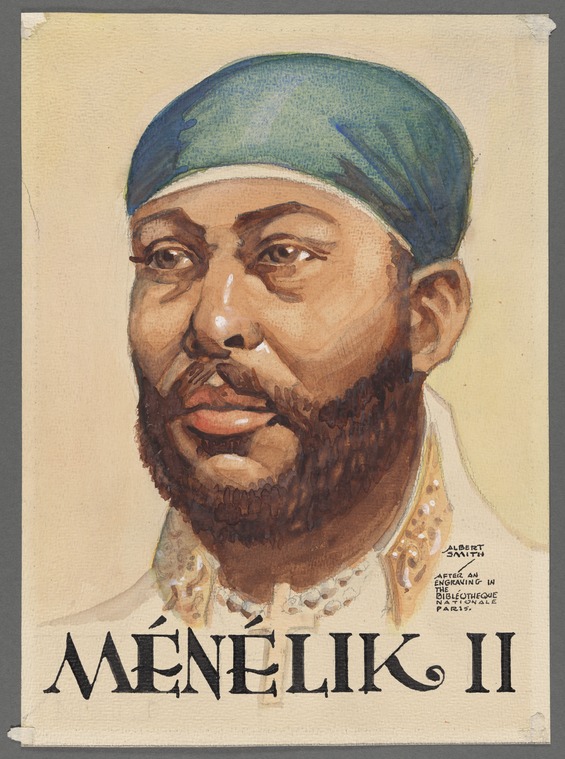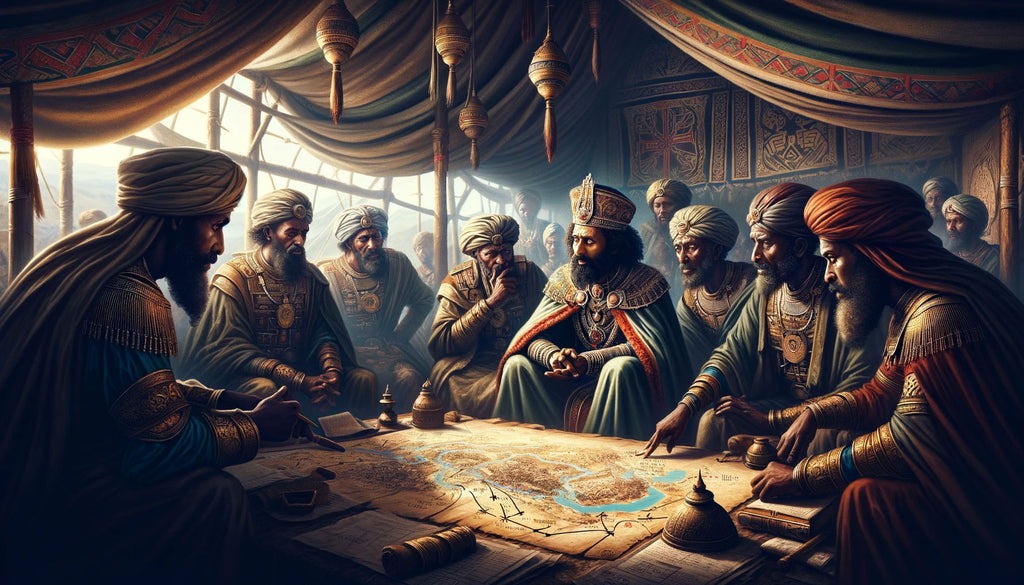In the late 19th century, as European powers carved up Africa during the Scramble for Africa, one nation stood firm against colonial domination: Ethiopia.
At the heart of this resistance was Emperor Menelik II, a visionary leader whose strategic brilliance and unwavering determination led to one of the most significant victories in African history—the Battle of Adwa.
Who Was Menelik II?
Menelik II, born Sahle Mariam in 1844, was a descendant of the Solomonic dynasty, which traced its lineage back to the biblical King Solomon and the Queen of Sheba. He became the ruler of Shewa in 1865 and later ascended to the throne as Emperor of Ethiopia in 1889. Menelik II was a forward-thinking leader who sought to modernize Ethiopia while preserving its independence.

During his reign, he introduced reforms in education, infrastructure, and governance. He built roads, established schools, and even brought electricity and telecommunications to Ethiopia. However, his most enduring legacy lies in his successful defense of Ethiopia’s sovereignty against colonial forces.
The Threat of Colonial Italy
By the late 19th century, Italy had established a foothold in Eritrea and sought to expand its influence into Ethiopia. In 1889, Italy signed the Treaty of Wuchale with Menelik II, which they claimed granted them a protectorate over Ethiopia.
However, the treaty contained a critical discrepancy between the Amharic and Italian versions. While the Italian version stated that Ethiopia was obliged to conduct foreign affairs through Italy, the Amharic version granted Ethiopia the option to do so.
When Menelik II discovered the deceit, he rejected the treaty and asserted Ethiopia’s independence. This bold move set the stage for a direct confrontation with Italy.
The Road to Adwa
Tensions between Ethiopia and Italy escalated, culminating in the Battle of Adwa on March 1, 1896. Menelik II, with the support of his wife Empress Taytu Betul and a coalition of Ethiopian nobles, mobilized a formidable army of over 100,000 soldiers.
The Ethiopian forces were well-armed, thanks to Menelik’s foresight in modernizing the military with rifles and artillery purchased from European suppliers.

The Italian army, led by General Oreste Baratieri, was confident of victory but underestimated the Ethiopians’ strategic prowess and determination. Menelik’s forces outmaneuvered the Italians, using the rugged terrain to their advantage. The battle ended in a decisive Ethiopian victory, with thousands of Italian soldiers killed, wounded, or captured.
The Significance of the Battle of Adwa
The victory at Adwa was a watershed moment in African history. It not only secured Ethiopia’s independence but also shattered the myth of European invincibility, inspiring anti-colonial movements across the continent. Ethiopia became a symbol of resistance and pride for Africans and the African diaspora.

The Battle of Adwa also had international implications. It forced Italy to recognize Ethiopia’s sovereignty and cemented Menelik II’s reputation as a skilled diplomat and military strategist. The victory was celebrated worldwide, and Ethiopia’s independence was formally recognized at the Treaty of Addis Ababa in 1896.
Menelik II and the Battle of Adwa stand as a testament to the resilience and determination of the Ethiopian people. In an era when much of Africa was being colonized, Menelik II’s triumph was a beacon of hope and resistance. His legacy continues to inspire, reminding us of the importance of defending sovereignty and standing up against injustice.

